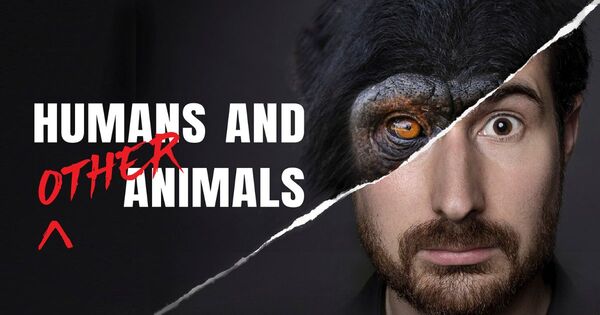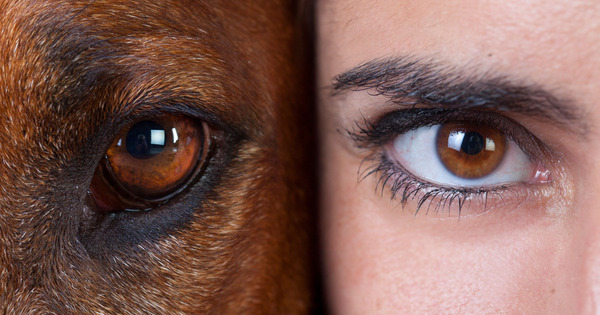When we look at ourselves and the animal kingdom, we often wonder: What does it mean to be human? How do we differ from animals, and what makes us so unique? In this article, we'll dive into various aspects of this question, comparing human traits with those of animals, exploring our shared characteristics, and highlighting what sets us apart. We'll also explore philosophical, biological, and ethical questions related to being human versus being an animal.

Humans are known for certain traits that make us unique in the animal kingdom. These traits are often the subject of much debate, but they include:
Self-awareness: Humans have the ability to think about themselves in the past, present, and future, and reflect on their actions.
Rational thought: Unlike most animals, humans can reason, plan, and solve complex problems.
Language skills: While animals can communicate, humans have developed intricate languages with grammar, syntax, and even abstract concepts.
Emotional expression: We show and understand a wide range of emotions, and our emotional intelligence helps us build strong relationships.
Creativity: Humans create art, music, literature, and new technologies—expressions of innovation not commonly seen in the animal world.
Moral and ethical understanding: Humans often consider the consequences of their actions, not just for themselves, but for others, and follow complex moral and ethical codes.
These traits form the core of what it means to be human.
While humans are unique in many ways, animals have their own set of remarkable characteristics:
Instinctual behavior: Animals often rely on instinct to survive. This could include migrating, hunting, or caring for their young.
Sensation and intuition: Animals have incredible sensory abilities, such as heightened hearing or vision, that humans may not have.
Non-verbal communication: While animals don’t speak like humans, they use gestures, vocalizations, and body language to communicate with each other.
Survival instincts: Animals are driven by the need to survive and reproduce, and much of their behavior is geared toward this end.
Emotional connections: Many animals, like Elephants-Are-Endangered.html">elephants and dolphins, display emotions like empathy and grief, showing us that animals are far more emotionally complex than we might think.
While animals don't reason in the same way humans do, their behaviors are highly adaptive and finely tuned to their environments.
Humans have advanced cognitive functions that allow us to think critically, engage in abstract reasoning, and understand complex concepts. Most animals, on the other hand, act more on instinct than thought. Some animals, like dolphins and primates, exhibit problem-solving skills, but these abilities are not as refined as in humans.
Humans have developed complex languages—we use words, sentences, and writing to convey meaning. While animals communicate, it’s mostly through body language and sounds, and their communication doesn’t carry the same depth or complexity as human languages.
Humans have cultures with unique traditions, art, and beliefs. Animals live in social groups (e.g., wolf packs, elephant herds), but their social structures are typically simpler, and they don't engage in cultural expressions or create long-lasting societal systems like humans do.
One of the key differences between humans and animals is our understanding of morality and ethics. Humans can engage in complex ethical reasoning about what’s right and wrong. We ask big questions about the treatment of animals, human rights, and the value of life.
On the other hand, animals operate based on survival instincts and are not concerned with moral choices in the way humans are. This often raises difficult ethical questions, such as:
Animal rights vs. human rights
Animal testing for medical purposes
Environmental conservation and the protection of endangered species
These discussions often lead us to ponder the ethical responsibility of humans to other living creatures.
Philosophers have long debated what makes humans different from animals. Here are some viewpoints:
Existentialism: Some argue that what makes us human is our ability to search for meaning in life and define our purpose.
Free will: Unlike animals, humans are seen as having free will—the ability to make choices that aren’t purely based on instinct.
The soul: Many religious and spiritual traditions believe that humans possess a soul, a non-physical essence that distinguishes us from animals.

Humans use spoken and written language to communicate, allowing us to share complex ideas, emotions, and abstract thoughts. In contrast, animals rely on non-verbal cues, sounds, and signals to convey messages. Some animals, like primates and whales, have complex systems of communication, but these lack the depth and flexibility of human language.
Humans create art, music, and literature—expressions of our creativity and culture. We have rituals and traditions that are passed down through generations. Animals, however, don't create culture in the same way. While they do exhibit social behaviors like grooming, playing, and hunting in groups, these behaviors are usually instinctive rather than learned or culturally passed on.
Humans and animals share a common ancestor, but over millions of years, we’ve evolved differently. Here are some points of comparison:
Evolution: Both humans and animals have evolved to adapt to their environments through natural selection.
Biology: While we share similar biological structures with many animals, such as DNA and organ systems, humans have a larger brain relative to body size, which enables our complex thinking and reasoning.
One fascinating question is whether animals have consciousness like humans. Some animals, especially primates, dolphins, and Elephants-Are-Endangered.html">elephants, display self-awareness, problem-solving, and empathy. But the depth and nature of their consciousness are still debated by scientists. While humans experience a higher level of consciousness, it’s unclear how much awareness animals truly have of themselves or their surroundings.
So, what makes us human? It’s our ability to reason, communicate, create, and reflect on our own existence. We have complex cultures, advanced intellectual capabilities, and an understanding of morality and ethics. Yet, many of these qualities also overlap with traits seen in some animals, especially in the realms of social bonding, problem-solving, and emotional depth.
Ultimately, what sets us apart is our awareness—the understanding that we are aware. Our curiosity about the world, our creativity, and our ability to reflect on life’s big questions shape our unique place in the animal kingdom.
This article gives you a detailed, structured comparison of humans and animals, exploring biological, philosophical, ethical, and cultural perspectives. The discussion sheds light on our shared traits with the animal kingdom while highlighting what makes us distinct. If you enjoyed reading this, feel free to share it with others interested in this thought-provoking topic!
animal tags: human-vs-animals
We created this article in conjunction with AI technology, then made sure it was fact-checked and edited by a Animals Top editor.